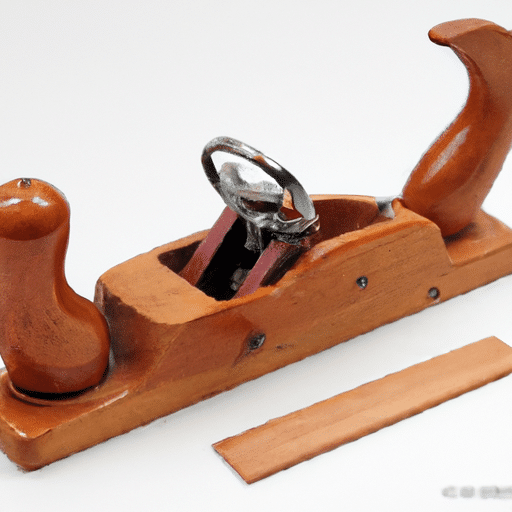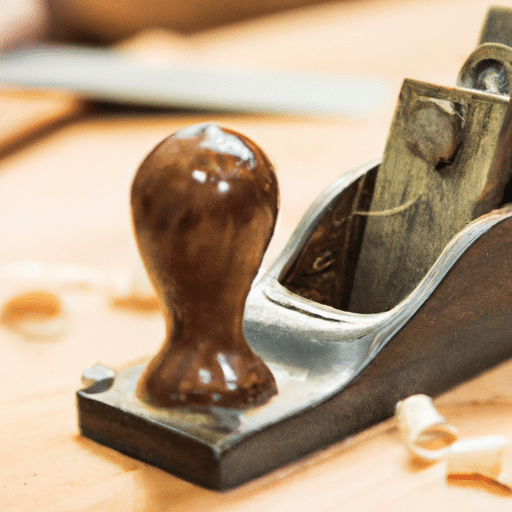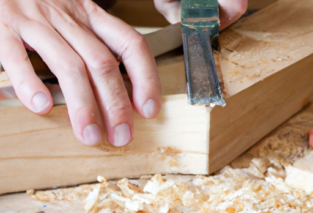In this article, you’ll discover some effective tips on finding the best woodworking workshops near you. Whether you’re a beginner or have some experience, these workshops can help you improve your woodworking skills and meet like-minded individuals. We’ll discuss the importance of location, facilities, and the expertise of instructors. By the end of this article, you’ll have all the information you need to find the perfect woodworking workshop in your area. Are you passionate about woodworking and eager to enhance your skills? Attending woodworking workshops can be a valuable experience that allows you to learn new techniques, gain knowledge from experts, and connect with other like-minded individuals. But with so many options available, how do you find the best woodworking workshops near you? In this article, we will explore the factors you should consider, research methods, and steps to take in order to make an informed decision.
Benefits of Woodworking Workshops
Woodworking workshops offer numerous benefits that can contribute to your growth as a woodworker. Firstly, they provide a structured learning environment where you can acquire new skills and refine existing ones. Through hands-on training, you can learn various techniques, such as joinery, carving, and finishing, from experienced instructors who are passionate about sharing their knowledge.
Furthermore, woodworking workshops allow you to expand your network and connect with other woodworking enthusiasts. By interacting with fellow participants, you can exchange ideas, seek advice, and establish long-lasting relationships within the woodworking community. These connections can be invaluable in terms of inspiration, collaboration, and future career opportunities.
Lastly, woodworking workshops provide a supportive and collaborative atmosphere. The workshops often consist of small class sizes, allowing instructors to provide individual attention and guidance. This personalized approach fosters an environment where you can ask questions, receive feedback on your projects, and learn at your own pace.
Skills and Knowledge Gained from Woodworking Workshops
Attending woodworking workshops can greatly enhance your woodworking skills and knowledge. Depending on the workshop’s focus, you may learn anything from basic woodworking techniques to advanced craftsmanship. Here are some key areas where workshops can help you grow:
-
Tool Proficiency: Workshops provide an opportunity to familiarize yourself with different woodworking tools and their proper usage. You can learn how to safely operate hand tools, power tools, and specialized equipment.
-
Joinery Techniques: Workshops often cover joinery techniques like dovetailing, mortise and tenon, and finger joints. These skills are essential for creating strong and aesthetically pleasing furniture.
-
Finishing and Refinishing: Workshops may teach various finishing methods such as staining, varnishing, and applying protective coatings. Mastering these techniques is crucial to achieving beautiful and durable woodwork.
-
Design and Blueprint Reading: Some workshops focus on design principles and reading blueprints. Understanding how to interpret and follow plans enables you to bring your woodworking ideas to life.
-
Safety Practices: Safety should always be a priority in woodworking. Workshops emphasize safe usage of tools, proper handling of materials, and the importance of protective gear.
By participating in woodworking workshops, you can expand your knowledge, develop new skills, and become a more competent woodworker.

Networking Opportunities in Woodworking Workshops
Woodworking workshops not only provide an environment for learning, but also offer excellent networking opportunities. Regardless of your experience level, connecting with other woodworkers can be valuable in several ways:
-
Sharing Knowledge and Inspiration: Engaging with fellow woodworkers allows you to exchange ideas, tips, and tricks. You can learn from each other’s experiences and draw inspiration from their projects.
-
Forming Collaborations: Workshops can lead to collaborations on woodworking projects. By joining forces with other skilled woodworkers, you can undertake larger and more complex projects together.
-
Building Professional Relationships: Networking within the woodworking community can lead to professional opportunities. Whether it’s getting referrals for commissions, finding employment in the industry, or establishing your own woodworking business, connections matter.
-
Staying Informed: Networking helps you stay updated on the latest trends, techniques, and industry news. By being part of a woodworking community, you can stay abreast of new tools, materials, and advancements in the field.
Remember, the woodworking community is known for its generosity and willingness to share knowledge. By actively participating in workshops and engaging with other woodworkers, you can build a supportive network that benefits your woodworking journey.
Factors to Consider When Choosing a Woodworking Workshop
When looking for the best woodworking workshop near you, it’s important to consider several factors that can greatly influence your experience. Here are some key factors to keep in mind:
Location and Accessibility
The location and accessibility of the workshop are crucial considerations. Is it close to your home or workplace? Can you easily reach the workshop without much hassle? Remember, a workshop that is conveniently located can save you time, effort, and transportation costs.
Expertise and Experience of Instructors
The expertise and experience of the instructors are paramount to your learning experience. Research the background and qualifications of the instructors teaching the workshop you are interested in. Look for instructors who have practical experience in woodworking and a passion for teaching.
Availability of Necessary Tools and Equipment
Make sure the workshop provides the necessary tools and equipment needed for the workshop. Assess the quality, condition, and maintenance of these tools. If you have any specialized tool requirements, confirm if the workshop can accommodate your needs.
Cost and Value for Money
Consider your budget when selecting a woodworking workshop. Compare the costs of different workshops in your area and assess the value you will be getting for your money. While it’s important to find affordable options, also prioritize the quality of instruction and resources provided.
Class Size and Individual Attention
Class size can greatly impact the individual attention you receive from instructors. Consider if you prefer a smaller class size for more personalized instruction or if you thrive in a larger group setting. Additionally, find out if the workshop offers opportunities for one-on-one feedback and guidance.
When evaluating woodworking workshops, weighing these factors against your personal preferences and requirements will help you make an informed decision.

Researching Woodworking Workshops in Your Area
There are several avenues you can explore to find woodworking workshops in your area. By utilizing online resources and local woodworking communities, you can gather comprehensive information about available workshops. Here are some research methods to consider:
Online Search Engines and Directories
Search engines and online directories are excellent resources to find woodworking workshops. Simply enter relevant keywords such as “woodworking workshops near me” or “woodworking classes in [your location].” Browse through the search results and explore the workshop websites and listings for detailed information.
Local Woodworking Clubs and Communities
Local woodworking clubs and communities are great sources of information. They often have websites or social media pages that share upcoming workshops and events. Joining these communities can connect you with experienced woodworkers who can provide valuable recommendations and advice.
Asking for Recommendations from Other Woodworkers
Reach out to fellow woodworkers and ask for their recommendations. Whether through personal connections or online woodworking forums, seek the opinions of those who have attended workshops in your area. Their insights can give you valuable perspectives on the quality and suitability of different workshops.
Reading Reviews and Testimonials
Take the time to read reviews and testimonials from past workshop participants. These opinions can provide valuable insights into the workshop’s strengths, weaknesses, and overall participant satisfaction. Look for recurring themes and patterns in reviews to get a clear understanding of what to expect.
Narrowing Down Your Options
After conducting thorough research, you will likely have a list of potential woodworking workshops. To narrow down your options and find the best fit for you, consider the following steps:
Determining Your Specific Woodworking Interests and Goals
Reflect on your woodworking interests and goals. Are you looking to master a specific technique or broaden your overall skill set? Identify the workshops that align with your goals and focus on those.
Comparing Workshop Offerings and Syllabuses
Compare the offerings and syllabuses of the workshops on your list. Evaluate the topics covered, the duration of the workshop, and the teaching methods employed. Choose workshops that cover the areas you are most interested in and offer comprehensive instruction.
Assessing the Reputation and Track Record of Workshop Organizers
Research the reputation and track record of the workshop organizers. Look for their past participants’ success stories, feedback on social media, and any industry recognition they may have received. A reputable organizer is more likely to provide a high-quality workshop experience.
Considering the Available Time Slots and Schedules
Evaluate the time slots and schedules offered by the workshops. Assess if the workshop timing aligns with your availability and commitments. Consider whether a workshop with a flexible schedule or varying duration would suit your needs better.
Checking for Any Additional Perks or Benefits
Some workshops may offer additional perks or benefits that enhance the overall experience. These can include access to online resources, follow-up support, or discounts on future workshops. Take note of any extras offered and evaluate their value in relation to the workshop fee.
By going through these steps, you can narrow down your options and focus on the workshops that best meet your woodworking goals and preferences.

Evaluating the Workshop Facilities
Another crucial aspect to consider when selecting a woodworking workshop is the evaluation of the workshop facilities. Here are some factors to help you assess the workshop’s environment:
Inspecting the Workshop Space and Cleanliness
Visit the workshop space if possible, or view photos on the workshop’s website. Assess the cleanliness and organization of the workshop. A clean and well-maintained space indicates professionalism and attention to detail.
Checking the Quality and Maintenance of Tools and Equipment
During your workshop visit, examine the quality and condition of the tools and equipment provided. Quality tools are essential for a successful woodworking experience. Look for signs of regular maintenance, such as sharpened blades and well-adjusted machinery.
Assessing the Safety Measures in Place
Woodworking involves inherent risks, so the workshop should have appropriate safety measures in place. Look for safety equipment like eye protection, dust collection systems, and proper ventilation. Evaluate if the workshop promotes and enforces safe operating practices.
Reviewing the Overall Organization and Efficiency
Observe how the workshop is organized and run. A well-organized workshop demonstrates professionalism and ensures efficient use of time. Consider if the workshop has clear instructions, a structured curriculum, and a supportive learning environment.
By evaluating the workshop facilities, you can ensure a safe and conducive learning environment for your woodworking journey.
Attending a Trial Class or Open House
If possible, attending a trial class or open house can provide valuable insights into the workshop experience. Here are some benefits of participating in such an event:
Getting a Feel for the Teaching Style and Atmosphere
Attending a trial class allows you to experience the teaching style and atmosphere firsthand. It gives you an opportunity to see if the instructor’s teaching methods resonate with your learning style and if the workshop environment aligns with your preferences.
Asking Questions and Interacting with Instructors and Participants
Trial classes provide an interactive platform where you can ask questions and engage with the instructors and other participants. This can give you a sense of the instructors’ expertise, their willingness to help, and the dynamics of the workshop community.
Assessing Workshop Facilities and Resources
During a trial class or open house, you can assess the workshop facilities and resources firsthand. Pay attention to the quality of tools, organization of the workspace, and availability of materials. This can help validate the information you gathered during your research.
Attending a trial class or open house can help you confirm if the workshop is a good fit for your woodworking journey.

Considering Workshop Duration and Commitment
Workshops can vary in duration, ranging from a single day to several weeks or months. When choosing a workshop, consider your availability and the desired level of commitment. Here are some factors to consider:
Short-Term Workshops vs. Long-Term Programs
Short-term workshops are ideal for those looking to acquire specific skills or complete a smaller project. Long-term programs, on the other hand, are suitable for woodworkers seeking a more comprehensive and in-depth learning experience.
Deciding Between Intensive or Part-Time Classes
Intensive classes offer concentrated learning over a shorter period, enabling rapid skill development. Part-time classes are spread out over a longer duration, allowing for a more flexible learning pace. Evaluate your preferred learning style and availability when making this decision.
Understanding the Level of Commitment Required
Consider the level of commitment required for the workshop. Some workshops may expect you to complete assignments or projects outside of class time. Determine if you can allocate the necessary time and effort to fully participate and benefit from the workshop.
By considering these factors, you can select a workshop that aligns with your availability and level of commitment.
Understanding the Workshop Fees and Payment Options
Understanding the workshop fees and available payment options is crucial when making your decision. Here are some key factors to consider:
Full Payment vs. Installment Plans
Workshops may offer different payment options. Some may require full payment upfront, while others allow for installment plans. Consider your financial situation and whether the payment terms suit your needs.
Additional Costs for Materials or Project Supplies
Some workshops include the cost of materials and project supplies in the overall fee, while others require participants to purchase them separately. Clarify what is included in the workshop fee to better assess the overall cost.
Cancellation and Refund Policies
Review the cancellation and refund policies before committing to a workshop. Understand the conditions under which a refund is possible and if there are any penalties or fees associated with cancellation. This ensures you have options in case unforeseen circumstances arise.
By understanding the workshop fees and payment options, you can make a well-informed financial decision.

Making the Final Decision
After considering all the factors and conducting thorough research, it’s time to make your final decision. Here are some steps to help you through the decision-making process:
Reviewing All Gathered Information
Consolidate all the information you have gathered throughout your research. Review your notes, workshop brochures, websites, and any other materials. This will help refresh your memory and provide you with a comprehensive overview of each workshop.
Considering Personal Preferences and Constraints
Factor in your personal preferences and constraints when making the final decision. Consider aspects such as location, workshop duration, scheduling, and cost. By aligning your decision with your unique circumstances, you increase the chances of a positive workshop experience.
Seeking Advice or Opinions from Trusted Individuals
If you’re still undecided, seek advice or opinions from trusted individuals in the woodworking community. Reach out to experienced woodworkers, mentors, or friends who have attended woodworking workshops before. Their input can provide valuable insights and help you gain a different perspective.
Following Your Intuition and Gut Feeling
Lastly, trust your intuition and gut feeling. If you have thoroughly researched and considered all the factors, your instincts can guide you towards the workshop that feels like the best fit for you. Remember, your woodworking journey should be enjoyable and fulfilling.
Conclusion
Finding the best woodworking workshops near you is essential in enhancing your skills, expanding your knowledge, and connecting with fellow woodworkers. By considering factors such as location, expertise of instructors, available tools and equipment, and workshop cost, you can make a well-informed decision. Through diligent research, attending trial classes or open houses, and evaluating workshop facilities, you can narrow down your options and choose the workshop that aligns with your woodworking goals. Taking the time to find the best workshop for you will ensure an enriching and enjoyable woodworking experience. So go ahead, explore your local woodworking community, and embark on your journey to becoming a skilled woodworker. Happy woodworking!





